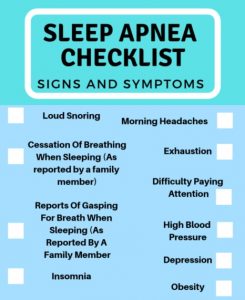SAS Sleep Disorder Center in Pune
SNORING CAN KILL
Contrary to Popular Belief: Snoring is not a sign of good Sleep. It can be a Dangerous form of Sleep Disorder.
Anyone may suffer from sleep apnoea but it is more commonly seen in: IT Professionals, Marketing executives, BPO executives, People who travel a lot, Shift workers etc.
What is Sleep Apnoea?
Sleep apnoea is a breathing disorder characterized by disturbances of respiration during sleep. What happens is this: the muscles of the upper respiratory tract are unable to maintain their patency during sleep. They collapse due to poor tone. This in turn leads to temporary cessation of breathing resulting in ‘gasping’ and partial ‘waking-up’ spells.
Types of Sleep Apnoea Syndrome (SAS)
Obstructive Sleep Apnoea (OSA) : Is most common and is caused by the collapse and consequently blockage by soft tissue in the rear of the throat, during sleep.
Central Sleep Apnoea (CSA) : In this situation, the brain itself fails to provide the breathing signals to the muscles. Here-in there are no blocked airways.
Mixed Sleep Apnoea : This is a combination of both the types.

Why’s & How’s? Apnoea = Cessation of breathing
When an apnoiec spell occurs, the oxygen level in the blood drops. And, warning signals from different parts of the body are rushed to the brain, which gets on a red alert, and arouses the patient from his slumber. Once aroused, the upper airway muscle tone increases, restoring the patency of the breathing passage and resumption of breathing. But all this disturbs and fragments the restorative REM sleep, and on awakening the patient does not feel refreshed. He/she suffers from daytime drowsiness and dullness. The interesting part is that most patients with sleep apnoea are not even aware of these arousals !!


… then what prompts them to seek medical attention?— THE SYMPTOMS!

During The Day
Excessive sleepiness
Morning headaches Behavioural abnormalities
like aggression, å hyperactivity and at
times, shyness!
Chronic Fatigue Always “not fresh”
in the morning Forgetfulness.

During The Night
Restless sleep
Loud snoring ,
typically interrupted
by gasping sound during
the apnoiec spells.
Nightmares Sweating
Nocturia (frequent Urination at night)
Cramps in calf
muscles.
Contributory Factors..
Obesity : People with thick necks and those who are overweight. Heavier people have a greater risk of sleep apnoea and the symptoms progressively worsen with increasing weight.
Snoring : Obstructive sleep apnoea syndrome is very common in loud snorers, but all snorers do not have sleep apnea.. and interestingly, sleep apnea can occur in non-snorers too!
Physical Abnormalities : Craniofacial abnormalities commonly cause obstruction of the airway. A small upper airway due to a large tongue, a large uvula, tonsils, adenoids, a recessed chin, excessive soft tissue in the throat can also contribute towards the same.
Age: Advancing age also reduces the upper airway muscle tone, leading to obstruction. Drugs & Alcohol : Various Drugs and alcohol may cause excessive muscle relaxation in the upper airway.
Family History : Sometimes it runs in the family… !
DANGERS OF SLEEP APNOEA & SNORING:

Sleep and Snoring Specialist in Pune | Dr Seemab Shaikh
Consequences of obstructive sleep apnoea can be broadly divided into those related to excessive sleepiness and those related to the cardiovascular system. Cardiovascular risk associated with sleep apnea include:
1. Hypertension
2. Myocardial infaction
3. Cardiac arrhythmias and Strokes
4. Nocturnal cardiac arrhythmias – including atrial and ventricular tachycardia, heart block and sinus pauses-have been reported during apnoiec episodes (nocturnal arrhythmias are often a clue to the diagnosis) – this causes death during sleep.
5. Pulmonary hypertension and right heart failure develop in approximately 10 to 15 percent of patients with severe sleep apnoea. Snoring & sleep apnoea can cause an increased risk of road
accidents.
How Do You Suspect If You Have Sleep Apnoea?
- Have you been told that you snore ? And that your snoring is followed by a period of silence and then again a loud snort or a gasp ? Ask your sleeping partner!
- Do you feel sleepy during the day, even after sleeping for sufficient hours?
- Do you always feel tired and fatigued ?
- Do you get irritable when you can’t sleep?
- Do you often get up at night & have trouble falling back to sleep?
- Does your body ache and feel stiff on getting up in the morning ? Are you never “fresh” in the morning?
- Do you wake up gasping for breath?
- Have you ever fallen asleep while driving and almost met with an accident?
Well, not all snorers, suffer from sleep apnoea, but if you have two or more of the above symptoms, you certainly need medical advice.
Talk to Dr.Seemab Shaikh and seek treatment from his Sleep Disorder Center in Pune.
Every problems comes with a solution! Your sleep specialist will tell you what you need to do
……. Corrective Surgery / CPAP Therapy / Conservative therapy so that you can make the most out of your day & life..

